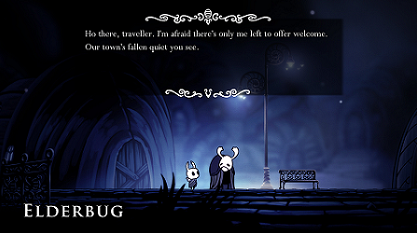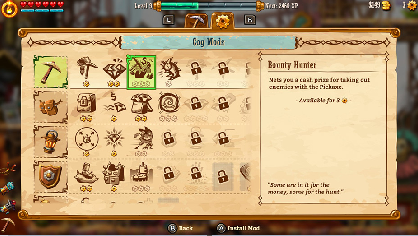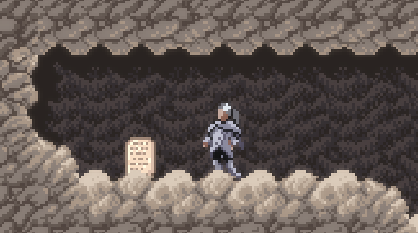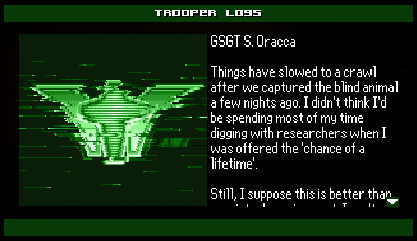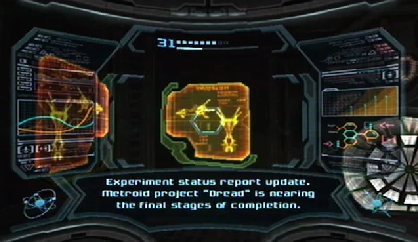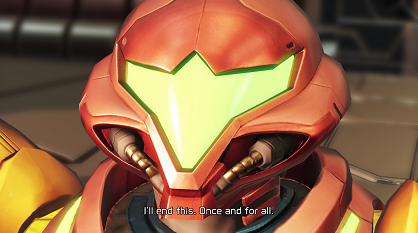I think this is an interesting question to ponder, considering I've seen many different ways to do it here. With my question, I'm not trying to imply there's a right or wrong way to implement lore, considering every game has different stories and systems that are complimented by different ways to deliver it, but I would simply like to know what does everyone here prefer.
By far the most common way I've seen developers implementing lore in this game jam is just NPCs or other static entities telling about past events in the game world when you walk up to them, something you see in games like Hollow Knight. Another way it's been done is by just dumping the lore on those "Item obtained!" screens that explain the use that said item had before you collected it, something games like Steamworld Dig 2 also do. Furthermore - while I haven't seen this in any jam games as of yet - there are games like Axiom Verge and AM2R that practically treat lore as a collectible, Axiom Verge having its notes and ancient slabs and AM2R having its scannable Trooper logs. Then there's also the far ends of the spectrum with the Metroid Prime games allowing you to scan almost anything and everything, while others like the original Metroid games go by the more hands-off approach of not explaining almost anything to you at all, unless you bother to speculate. And of course there's always the straightforward way of simply making the player sit through cutscenes that you can't avoid (other than by skipping), like in Metroid Dread, where the story is thus integral to your progression.
That's also a relevant question: how central do you want to make the lore be to progressing in the game, meaning if you actually need to know the lore/story to get through the game or understand what you're doing in general. Dread, for example, doesn't really allow you to play the game without at least activating its story cutscenes, and the final boss won't really make sense to you if you skip everything. There might also be NPCs that forcibly spout exposition at you if you want to proceed, like in Prime 2 and 3. Again, not saying any of these kinds of ways of teaching the player about the world's history are good or bad, I'm simply recollecting all of the different examples I can think of.
Just so you know, I'm mostly somewhere in the AM2R/Prime camp on this. You should be able to understand the game's basic premise and your goal as the protagonist without any separate lore at all, but at the same time there should be optional lore that the player has to put some effort into finding out, much like an item. I think it makes the game feel much richer, and the stories much more meaningful if you do decide to seek it out. While NPCs might make sense in some cases, they're usually placed in front of you while playing and you can't always know if they're going to tell you some actually crucial information or just recount their old days.
While making our game - The Last Revenant - I probably took the most inspiration out of Axiom Verge's note system, although we didn't have time to make the notes go into your inventory upon touching them, so in practice they're actually closer to static NPCs that you have to stand beside to get the information out of them, like in Hollow Knight. However, a crucial difference is that - aside from a few exceptions - all of the optional lore in our game has to specifically be seeked out. Very little of it can be found on the beaten path the average player will take to the end, so you have to get off on adventures of different sizes and scales to reach it. This also benefits the positive feedback loop of the game, because it basically adds a whole different type of item to collect that can help to put the world in just as much new context as your average core upgrade would do.
Anyway, what do you guys think? When making a metroidvania with a decently sizeable story or background lore, should the approach be more hands-on or hands-off?
